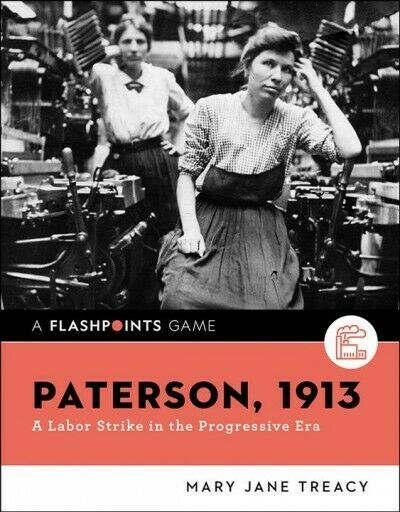 |
EGYPT 1920s
Egypt 1920s: Feminism, Nationalism, and Islam
by Heather Keaney

Play this game recently? | Dueling modernities on the way to independence Egypt has gained limited independence from Great Britain and a new constitutional monarchy. But 18 months in, the new democratic mechanisms are already faltering. Furthermore, Egypt is not fully independent. The challenge is that many of the reforms that will supposedly prepare Egypt for independence make Egypt look more and more like Britain. Is it the case that Egypt has to become more like Britain in order to achieve independence from Britain? Students are politicians, industrialists, feminists, reformers, and religious leaders debating whether different proposed reforms are making Egypt modern or western. This is not theoretical. Each game session presents competing reform proposals and players must invest “capital” into the reforms they most want to see. The game develops based on the outcome of the competition within each game session as well as how students strategize how to invest their Capital in one area of reform rather than another. Rather than set factions and indeterminates, all players have strong views on some issues and are persuadable on others. The role of women in the family and society is frequently the test case for debates around how to be politically and economically modern and remain culturally rooted and authentic: such as girls education, women’s suffrage, and change to Islamic marriage laws. This is a Level 3 game that is still under development but has been approved by the Reacting Editorial Board (REB) for general use. A detailed explanation of the editorial process and game levels can be found on our REB Page. |
Details
|
Using the Game
Class Size and Scalability Class Time
This game can be used on its own, or with other games. These pairings are meant to be illustrative rather than exhaustive or prescriptive. Egypt 1920s may pair well with:
Assignments You can adjust the assignments based on the desired learning outcomes of your class. This game can include journalism and traditional thesis-driven writing. |
 GAME MATERIALS
GAME MATERIALS
Reacting Consortium members can download all game materials below. You will be asked to sign in before downloading.
Please Fill out the Permissions Request Form Before Using Egypt 1920s in Your Class!
Gamebook All students need a Gamebook, which includes resources and historical content. Members can download the Gamebook, and provide it to students for free or at cost. Updated September 2024. | Instructor's Manual The Instructor's Manual includes guidance for assigning roles, presenting historical context, assignments, activities and discussion topics, and more. | Role Sheets & Additional Materials Students also need a Role Sheet, which contains biographical information, suggestions for further reading, and role-specific info or assignments. |
Heather Keaney
Professor Keaney has a PhD in Middle East History from the University of California, Santa Barbara. She has taught for over a decade at the American University in Cairo before returning to Santa Barbara to teach at Westmont College. She teaches a courses on different aspects of Middle East history as well as world history. |
Members can contact game authors directly if they have questions about using the game. We also invite instructors join our Facebook Faculty Lounge, where you'll find a wonderful community eager to help and answer questions.
|
|


